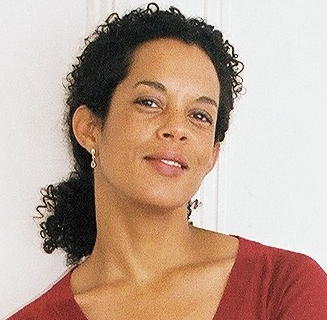 Aminatta Forna was born in Glasgow and
raised in Sierra Leone and the United Kingdom. She is the award-winning author
of The
Memory of Love, Ancestor Stones and The
Devil that Danced on the Water. Her new
novel, The Memory of Love (Atlantic Monthly, January 4, 2011), is a story about friendship, war
and obsessive love. It has been selected as one of the Best Books of the Year
by the Sunday Telegraph, the Financial
Times and the Times (U.K.).
Aminatta Forna was born in Glasgow and
raised in Sierra Leone and the United Kingdom. She is the award-winning author
of The
Memory of Love, Ancestor Stones and The
Devil that Danced on the Water. Her new
novel, The Memory of Love (Atlantic Monthly, January 4, 2011), is a story about friendship, war
and obsessive love. It has been selected as one of the Best Books of the Year
by the Sunday Telegraph, the Financial
Times and the Times (U.K.).
On your nightstand now:
I keep
books I am reading in different places. In my handbag is Granta's latest edition; David Sedaris next to the bath; Hector
Abad's Oblivion by the bed.
Favorite book when you were a child:
White Fang by Jack London. I borrowed it from
the British Council Library in Freetown and read and re-read the story of a
wolf in the snowscapes of North America in a 40° C African heat. Recently I
bought it for my godson and found I could remember whole passages.
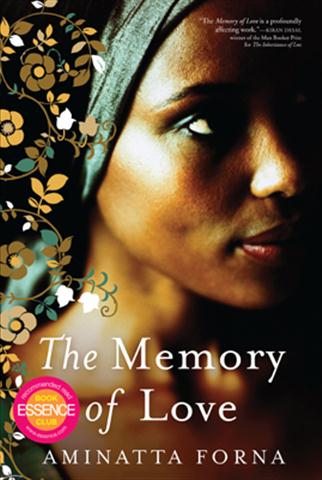 Your top five authors:
Your top five authors:
Michael
Ondaatje, Margaret Atwood, Ngugi wa Thiongo, Pat Barker, Josip Novakovich.
Ondaatje
for structure, he is a real writer's writer. Atwood for vision. Pat Barker for
powerful realism. Ngugi wa Tiongo for language and imagination. Novakovich for humour,
even when writing about war.
Book you've faked reading:
I read law
at university and often feel poorly read compared to English literature
graduates of whom I seem to know a large number. I have never read Dickens,
something I once tried to correct, but failed in the face of the enormity of
the task. Same goes for Jane Austen. I bought all her books last year and discovered
I preferred the miniseries.
Book you're an evangelist for:
Quite a few
actually. Too much great writing doesn't get its due, especially if it is in
translation. Last year it was Laura Escoba's The Rabbit House, about a summer in a safe-house during the
Argentinean Dirty War. This year Hector Abad's Oblivion--finally translated into English.
Book you've bought for the cover:
I haven't
but if I did it would be The God of Small
Things. I only noticed the poignancy of the cover when I was some way into
the book. Apparently Arundhati Roy photographed it herself. If you haven't read
it, go and buy it and you'll see what I am talking about. If you have, go and
take another look.
Book that changed your life:
Life and Times of Michael K by J.M. Coetzee, which won the
Booker Prize in 1983. It was writing with a purpose that went beyond
entertainment. Political writing is very unfashionable these days and most
writers will go out of their way to claim they are merely storytellers, but
writing out of South Africa at that time--Coetzee, Gordimer, Alan Paton, André
Brink--wore its heart on its sleeve and it was magnificent.
Favorite line from a book:
"They
say when trouble comes close ranks, and so the white people did."--Jean
Rhys, Wide Sargasso Sea. Everything
the book is about.
Book you most want to read again for
the first time:
The Life of Pi by Yann Martel. Because you have to
believe in magic.
Book you wish you had written:
The English Patient by Michael Ondaatje.
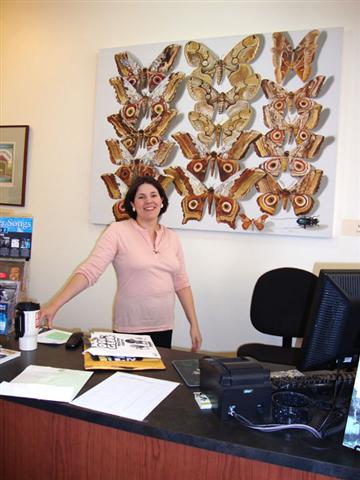 "Late in the day on Tuesday, a couple came into the store. After browsing a bit, the wife approached the desk. Her husband, she explained, is a voracious reader. So, she got him a Kindle for Christmas. He tried it and didn't like it. So, she returned the Kindle and was at Battenkill Books to apply the same amount of money to a gift certificate for her husband. It made my day!"
"Late in the day on Tuesday, a couple came into the store. After browsing a bit, the wife approached the desk. Her husband, she explained, is a voracious reader. So, she got him a Kindle for Christmas. He tried it and didn't like it. So, she returned the Kindle and was at Battenkill Books to apply the same amount of money to a gift certificate for her husband. It made my day!"







 Nearly 75% of college students prefer printed textbooks over
e-textbooks, citing "a fondness for print's look and feel, as well as
its permanence and ability to be resold," according to a Book Industry
Study Group research survey called
Nearly 75% of college students prefer printed textbooks over
e-textbooks, citing "a fondness for print's look and feel, as well as
its permanence and ability to be resold," according to a Book Industry
Study Group research survey called 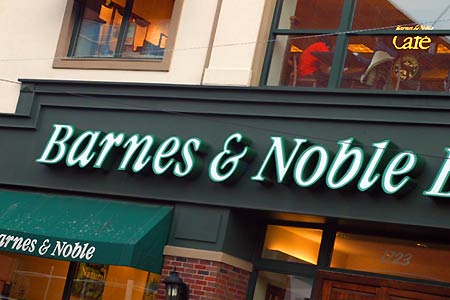 Not that it would ever want to highlight the contrast between its
fortunes and those of another national book retailer, but Barnes & Noble
made public information about its happy holiday sales for the second time in a
week.
Not that it would ever want to highlight the contrast between its
fortunes and those of another national book retailer, but Barnes & Noble
made public information about its happy holiday sales for the second time in a
week.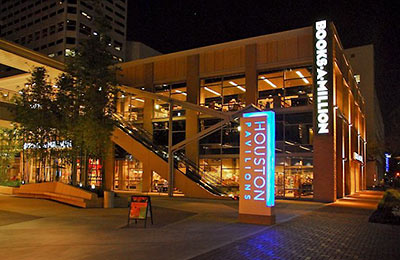 Never mind. The 24,000-sq.-ft. Books-A-Million in downtown Houston, Texas, that was
about to close because of low sales at the Houston Pavilions and the
general area will not close after all. Local real estate website
Never mind. The 24,000-sq.-ft. Books-A-Million in downtown Houston, Texas, that was
about to close because of low sales at the Houston Pavilions and the
general area will not close after all. Local real estate website 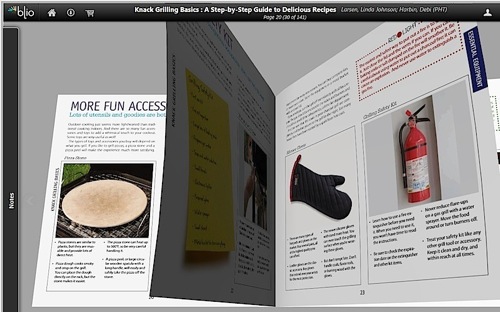
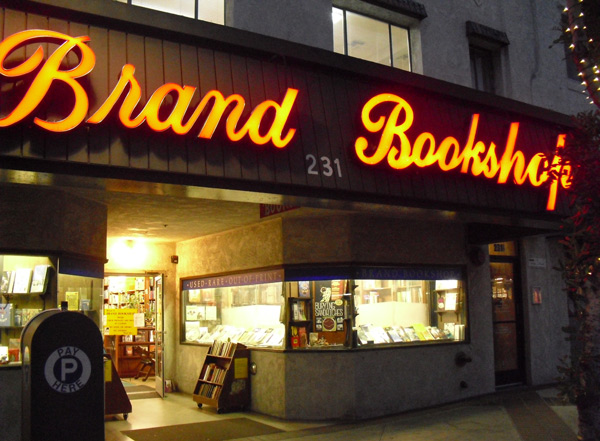 Brand Bookshop, Glendale, Calif., "the kind of used bookstore that's built for a long afternoon of browsing," is
Brand Bookshop, Glendale, Calif., "the kind of used bookstore that's built for a long afternoon of browsing," is 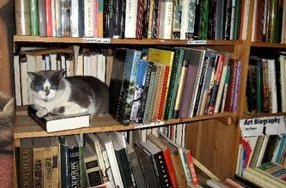 A new selection of
A new selection of 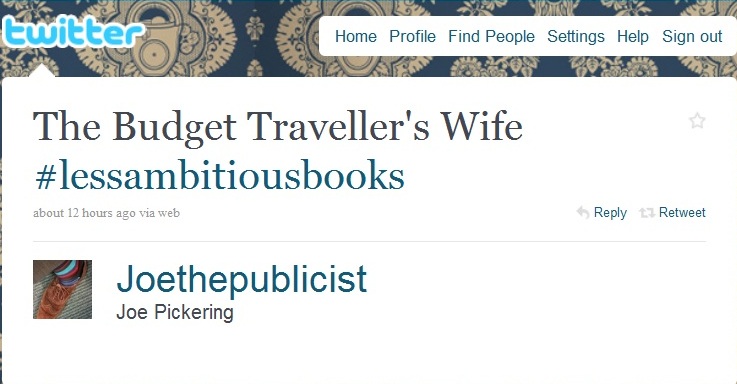 The Twitter hashtag
The Twitter hashtag 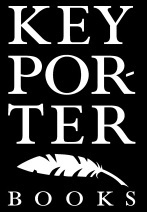 Canadian publishing house Key Porter Books has ceased operations, the
Canadian publishing house Key Porter Books has ceased operations, the  General retail sales last month were up, but did not meet expectations as the "holiday shopping season finished weaker than it started for store
chains ranging from Target Corp. to Gap Inc., thwarting hopes that
leading retailers would raise profit forecasts from strong sales," the
General retail sales last month were up, but did not meet expectations as the "holiday shopping season finished weaker than it started for store
chains ranging from Target Corp. to Gap Inc., thwarting hopes that
leading retailers would raise profit forecasts from strong sales," the 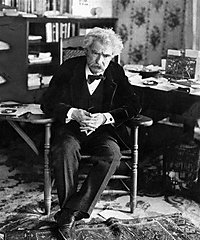 characters from across the canon of Southern literature.
characters from across the canon of Southern literature. 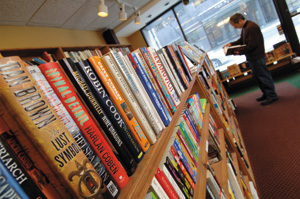 The classes are led by Jamilee
McQuivey, a fitness and nutrition expert and co-author of the health-conscious
cookbook Three Plates at the Table. The
cost is $50 for all four classes or $15 for single sessions.
The classes are led by Jamilee
McQuivey, a fitness and nutrition expert and co-author of the health-conscious
cookbook Three Plates at the Table. The
cost is $50 for all four classes or $15 for single sessions.  Robert Pattinson will star in David Cronenberg's adaptation of Don DeLillo's novel Cosmopolis, "stepping into the shoes that were to be worn by Colin Farrell," according to the
Robert Pattinson will star in David Cronenberg's adaptation of Don DeLillo's novel Cosmopolis, "stepping into the shoes that were to be worn by Colin Farrell," according to the  Aminatta Forna was born in Glasgow and
raised in Sierra Leone and the United Kingdom. She is the award-winning author
of The
Memory of Love, Ancestor Stones and The
Devil that Danced on the Water. Her new
novel,
Aminatta Forna was born in Glasgow and
raised in Sierra Leone and the United Kingdom. She is the award-winning author
of The
Memory of Love, Ancestor Stones and The
Devil that Danced on the Water. Her new
novel,  Your top five authors:
Your top five authors: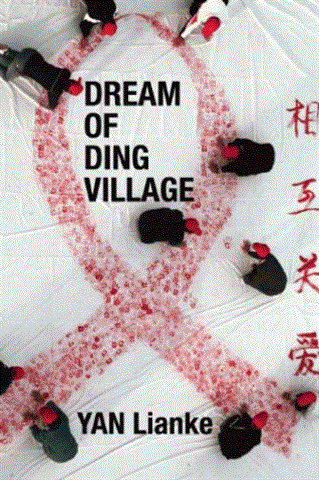 Based on a true epidemic of AIDS blood-contamination in China, this fascinating, chilling novel is narrated by a dead 12-year-old boy, buried behind the brick wall of the elementary school. He's the murdered son of Ding Hui, the first and richest of the blood merchants and primary destroyer of the village.
Based on a true epidemic of AIDS blood-contamination in China, this fascinating, chilling novel is narrated by a dead 12-year-old boy, buried behind the brick wall of the elementary school. He's the murdered son of Ding Hui, the first and richest of the blood merchants and primary destroyer of the village.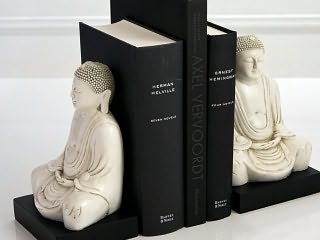 My bookends work well, but I'm not really testing their full capabilities since they usually hold no more than a dozen titles, all precious to me if not necessarily to anyone else.
My bookends work well, but I'm not really testing their full capabilities since they usually hold no more than a dozen titles, all precious to me if not necessarily to anyone else.